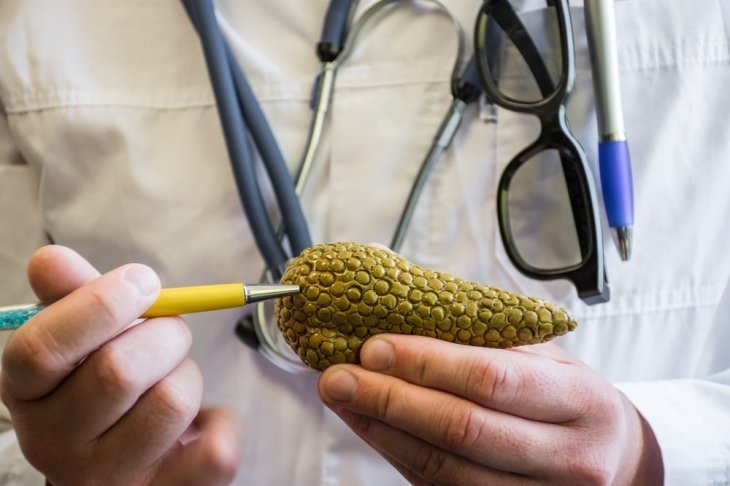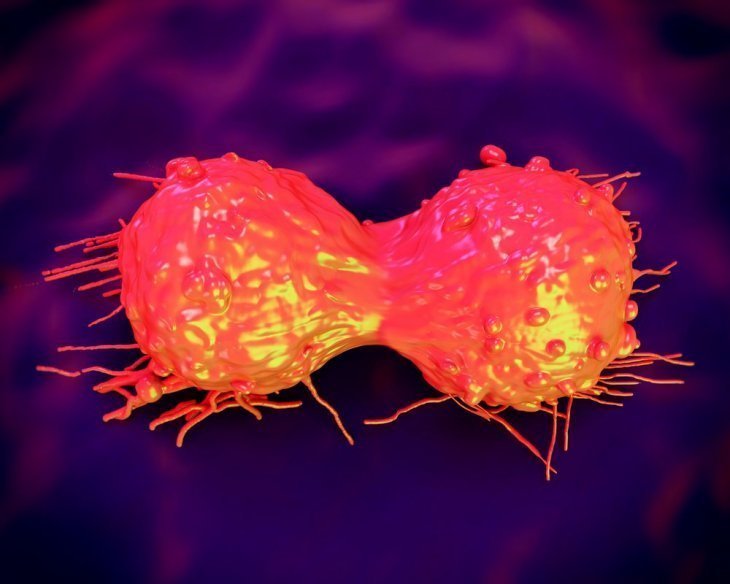
6 warning signs and symptoms of pancreatic cancer everyone should know about
Pancreatic cancer is considered both one of the most lethal types of cancer and a ‘silent’ one that doesn’t show any early symptoms. But there are a number of signs that can warn us about it at an early stage.
This type of cancer resonated quite a lot when it took the life of Apple’s founder Steve Jobs in 2011, and it is the fourth type of cancer with more deadly victims in the United States, according to Prevention.
The pancreas is an organ that is located in the abdomen, behind the stomach, and it is approximately six inches long.
It has two main functions in the body: first, to produce the gastric juices that help digest the food, and second, to produce hormones like insulin that help the body control the levels of sugar in the blood.
Pancreatic cancer appears when some of the cells of this organ mutate and turn into cancerous cells that grow and multiply abnormally until a tumor is formed, sometimes expanding to other parts of the body

Image source: Shutterstock.
Here are six warning signs of pancreatic cancer that everybody must keep in mind:
1. New onset of diabetes:
Dr. Valerie Lee, MD, pancreatic oncologist at Johns Hopkins Medicine says:
‘When people with no risk factors for diabetes (no family history, good diet, thin body type) develop new-onset diabetes, or who have a history of well-controlled diabetes suddenly find that it becomes difficult to control, it’s reasonable to evaluate why the pancreas may not be functioning as well.’
2. Abdominal pain:
‘The pancreas sits close to a bundle of blood vessels and nerves called the celiac plexus that can cause pain and nerve irritation, says Dr. Lee. ‘But the pain is usually pretty encompassing of your abdomen.’
‘Patients feel pain from the epigastrum (the area just under the sternum) through to their back.’
‘Imagine a tire hiked up right under your chest and around your abdomen,’ says Kim Reiss-Binder, MD, an oncologist from the University of Pennsylvania who specializes in pancreatic cancer.

Image source: Shutterstock.
3. Unexplained blood clots:
‘Patients with pancreas cancer are particularly prone to blood clots,’ says Dr. Lee.
The exact cause for this is still unknown, but there are many indications that cancer cells inhibit the proteins used by the body to prevent blood clots.
While the exact cause is not known, it is believed that cancer cells reduce the proteins the body uses to prevent blood clots.
‘For people who do not have a reason for the development of a clot—a recent major surgery, trauma (like a car accident), hospitalization, or prolonged period where you are laying still, or a hereditary predisposition to clotting—we recommend making sure you are up to date on your cancer screening and to check in with your doctor about any other symptoms that may help to identify the source of the clotting abnormality,’ says Dr. Lee.

Image source: Shutterstock.
4. Diarrhea and floating stools:
‘The pancreas does not just produce insulin; it also produces pancreatic enzymes that help break down fat,’ says Dr. Lee.
‘If there is a blockage in the output of pancreatic enzymes, such as a tumor developing in the pancreas, then fat is not digested as well.’
As a consequence of this, a patient will produce foul-smelling ‘fatty’ stools that float to the top of the toilet bowl, and the frequency of them will increase after consuming fat-rich foods.
5. Jaundice:
The pancreas is located close to the liver, which produces bile. If a tumor prevents the bile ducts from draining bile appropriately, people may develop elevated levels of bilirubin in their body, which translates into jaundice, or a yellowing of the skin.
‘This is usually best seen in the white of the eyes, and can also lead to itching all over the body, light-colored stools, and darkened urine,’ says Dr. Lee.
6. Unexplained weight loss and change in eating patterns:
‘The pancreas is nestled right near the small intestine near the first part of the small intestine, and tumors can cause food to back up or not get through to the small intestine as quickly,’ says Dr. Reiss-Binder.
¿Have you experienced a loss of appetite or feel full despite having eaten a small quantity? This could be a sign of pancreatic cancer.
As the American Cancer Society states, presenting one or many of these symptoms doesn’t mean you have pancreatic cancer, but they are all worth a visit to the doctor. Read more on our Twitter account @amomama_usa
The information in this article is not intended or implied to be a substitute for professional medical advice, diagnosis or treatment. All content, including text, and images contained on news.AmoMama.com, or available through news.AmoMama.com is for general information purposes only. news.AmoMama.com does not take responsibility for any action taken as a result of reading this article. Before undertaking any course of treatment please consult with your healthcare provider.
